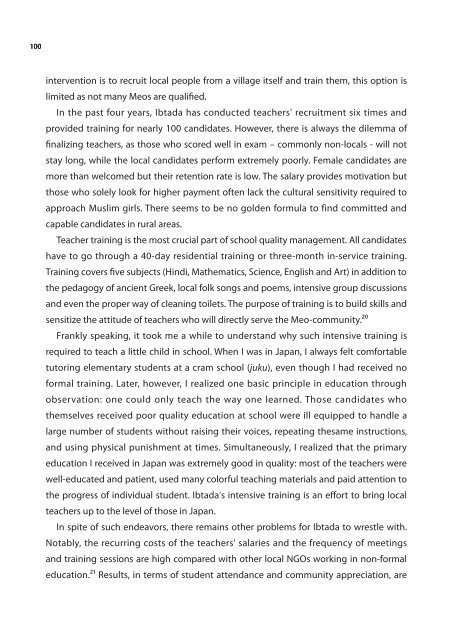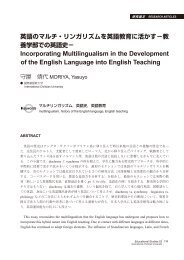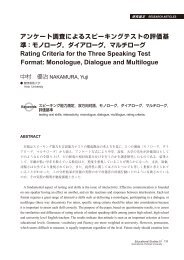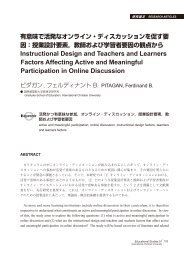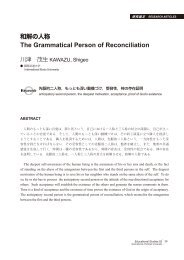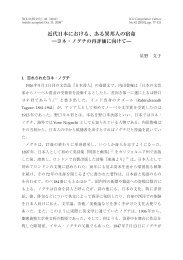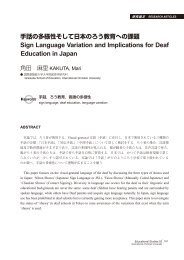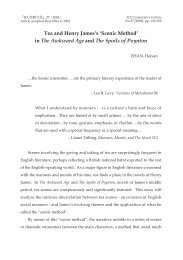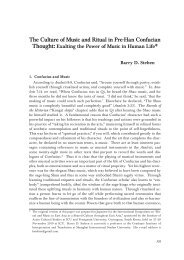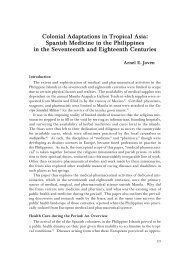Untitled - subsite - å½éåºç£æ大å¦
Untitled - subsite - å½éåºç£æ大å¦
Untitled - subsite - å½éåºç£æ大å¦
Create successful ePaper yourself
Turn your PDF publications into a flip-book with our unique Google optimized e-Paper software.
100<br />
intervention is to recruit local people from a village itself and train them, this option is<br />
limited as not many Meos are qualified.<br />
In the past four years, Ibtada has conducted teachers' recruitment six times and<br />
provided training for nearly 100 candidates. However, there is always the dilemma of<br />
finalizing teachers, as those who scored well in exam – commonly non-locals - will not<br />
stay long, while the local candidates perform extremely poorly. Female candidates are<br />
more than welcomed but their retention rate is low. The salary provides motivation but<br />
those who solely look for higher payment often lack the cultural sensitivity required to<br />
approach Muslim girls. There seems to be no golden formula to find committed and<br />
capable candidates in rural areas.<br />
Teacher training is the most crucial part of school quality management. All candidates<br />
have to go through a 40-day residential training or three-month in-service training.<br />
Training covers five subjects (Hindi, Mathematics, Science, English and Art) in addition to<br />
the pedagogy of ancient Greek, local folk songs and poems, intensive group discussions<br />
and even the proper way of cleaning toilets. The purpose of training is to build skills and<br />
sensitize the attitude of teachers who will directly serve the Meo-community.²⁰<br />
Frankly speaking, it took me a while to understand why such intensive training is<br />
required to teach a little child in school. When I was in Japan, I always felt comfortable<br />
tutoring elementary students at a cram school (juku), even though I had received no<br />
formal training. Later, however, I realized one basic principle in education through<br />
observation: one could only teach the way one learned. Those candidates who<br />
themselves received poor quality education at school were ill equipped to handle a<br />
large number of students without raising their voices, repeating thesame instructions,<br />
and using physical punishment at times. Simultaneously, I realized that the primary<br />
education I received in Japan was extremely good in quality: most of the teachers were<br />
well-educated and patient, used many colorful teaching materials and paid attention to<br />
the progress of individual student. Ibtadas intensive training is an effort to bring local<br />
teachers up to the level of those in Japan.<br />
In spite of such endeavors, there remains other problems for Ibtada to wrestle with.<br />
Notably, the recurring costs of the teachers' salaries and the frequency of meetings<br />
and training sessions are high compared with other local NGOs working in non-formal<br />
education.²¹ Results, in terms of student attendance and community appreciation, are


